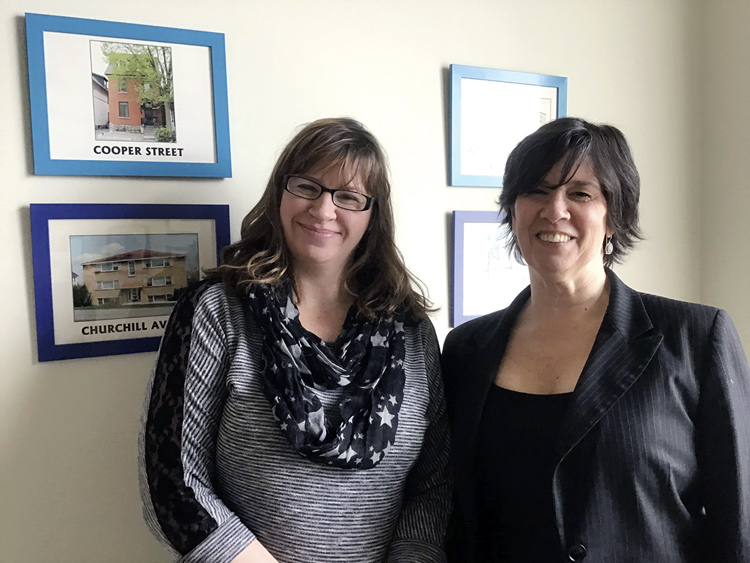By Charlie Senack –
Since 1979, Salus has been providing rehabilitation and affordable housing services to adults in Ottawa with severe mental illness, and this year they are celebrating their 40th anniversary.
Salus, which is a Latin word meaning “health and wellness” was originally created by a group of parents, social workers and doctors who were concerned that people with severe mental illnesses were being discharged from hospitals without adequate support. It came at the time provincial mental hospitals began to close, leaving the vulnerable population without a place to go.
The group opened their first location on Cooper Street in 1979, which housed seven residents and an on-site social worker. Little did they know 40 years later the charity group would be made up of nine apartment buildings, a single family home and two shared living spaces.
“Every person who comes to us is their own person with their own unique situation,” says Lisa Ker, executive director for Salus. “That is why it is absolutely a priority that we have choice for the residents if they want to live in a small building or a big building.”
 Marianne Long, Manager and Fund Development for Salus Ottawa, stands next to Lisa Ker, executive director for Salus, at their headquarters in the heart of Kitchissippi. Salus provides supportive housing to individuals living with mental illness. Photo by Charlie Senack
Marianne Long, Manager and Fund Development for Salus Ottawa, stands next to Lisa Ker, executive director for Salus, at their headquarters in the heart of Kitchissippi. Salus provides supportive housing to individuals living with mental illness. Photo by Charlie SenackEach building is different in size, with the smallest only having seven units and the largest having 42.
The group has become so popular in recent years, the waiting list to be a part of the organization is almost 10 years long.
But it’s not just housing support Salus offers. They also host a number of activities at their head office located at 2000 Scott St., a building that also houses 40 residents. Different programs that share the common living space, including knitting groups, yoga classes and Tai Chi. Salus also offers opportunities outside of their buildings, including field trips to places like Upper Canada Village and participating in Ottawa Race Weekend.
But Lisa says it’s not always easy to get the residents involved. Despite all activities being voluntary, a community developer works with the residents to help push them out of their comfort zone.
“One of the biggest challenges for someone living with a serious mental illness is that isolation just fuels their illness,” says Lisa. “That’s why breaking isolation is a huge part of our mandate.”
The group also has two different locations that are used as rehabilitation centres — and some are the first of their kind in Ontario.
One location houses 15 people at a time, and is a one-year program which helps rehabilitate people who are mentally ill back into the community after spending time in a psychiatric hospital.
And the Grove, as it’s called, is a similar program, but works with people who committed a crime but were not declared criminally responsible due to their mental illness.
“They committed a crime, but because of their mental illness, they were sent to a psychiatric forensic unit instead of jail,” states Lisa. “Now they are rehabilitating in the community (with us) because they finished that time.”
It was a pilot project that started with the Grove in Ottawa, and has now expanded to 14 residences across Ontario.
Learn more about Salus at salusottawa.org.
Is there a non-profit group or volunteer that you think we should feature in KT? Do you know someone who is making our community a better place? Let us know! Send your suggestions to us via this form.
* This feature is brought to you in part by Catherine McKenna, MP Ottawa Centre.
